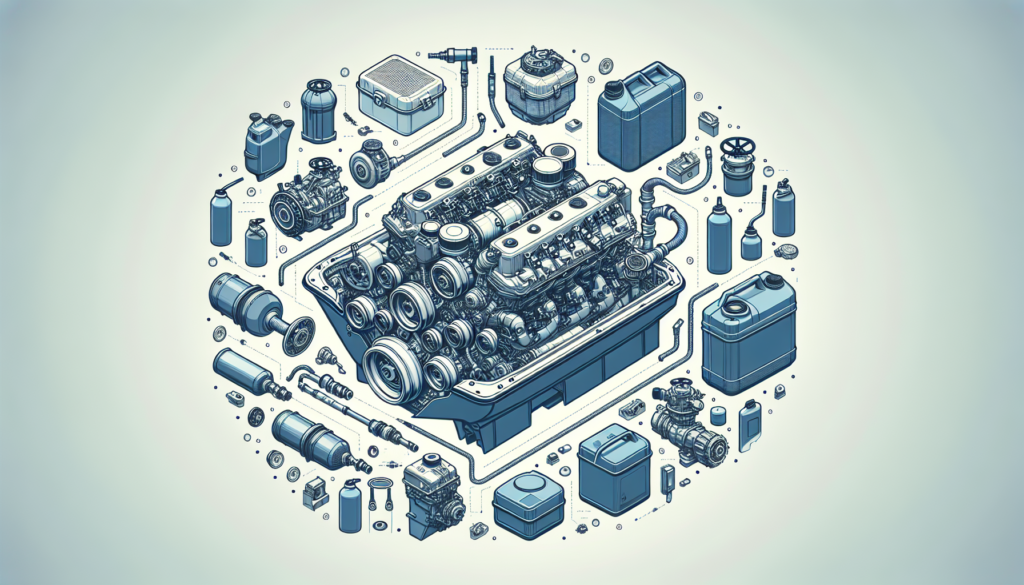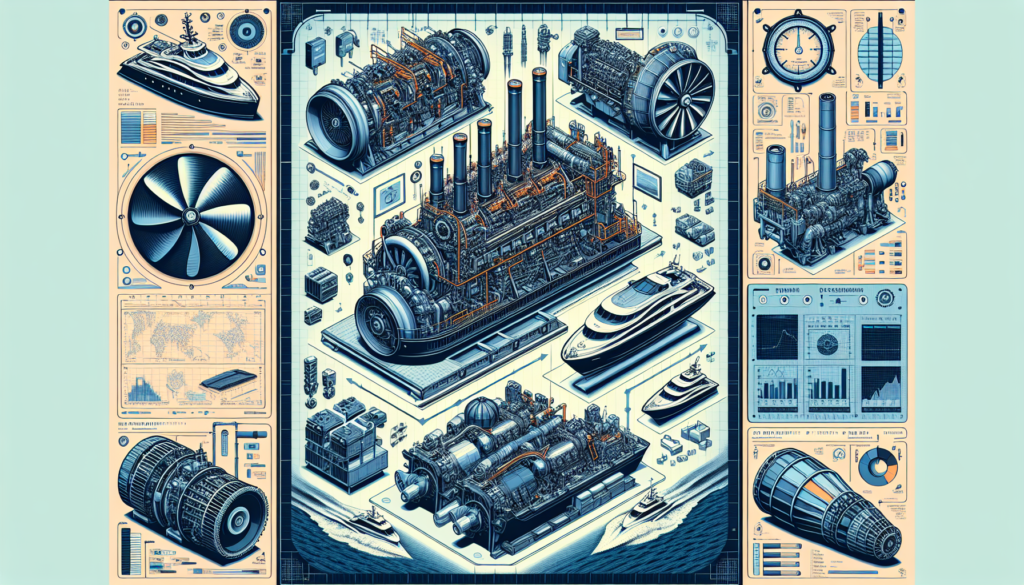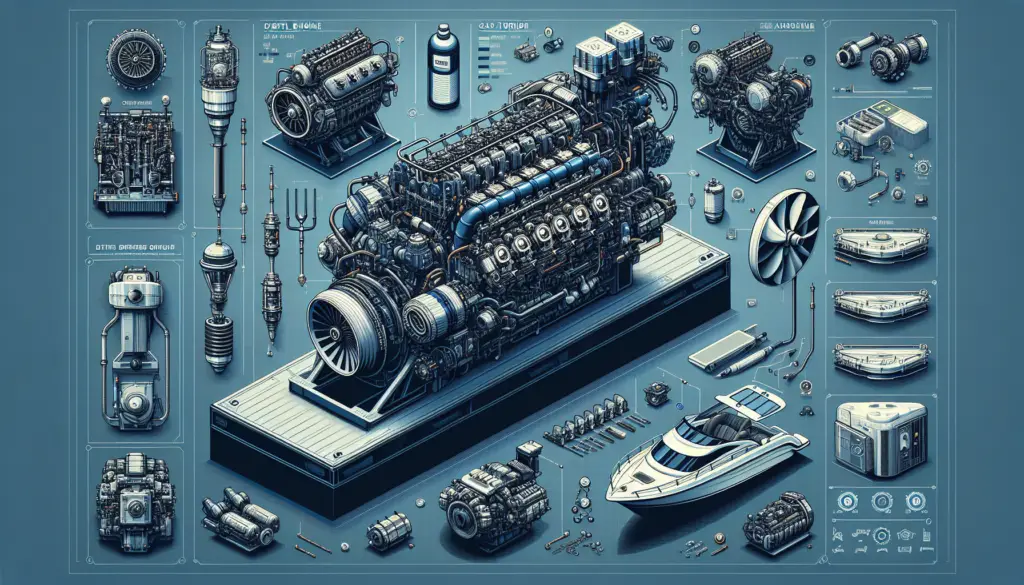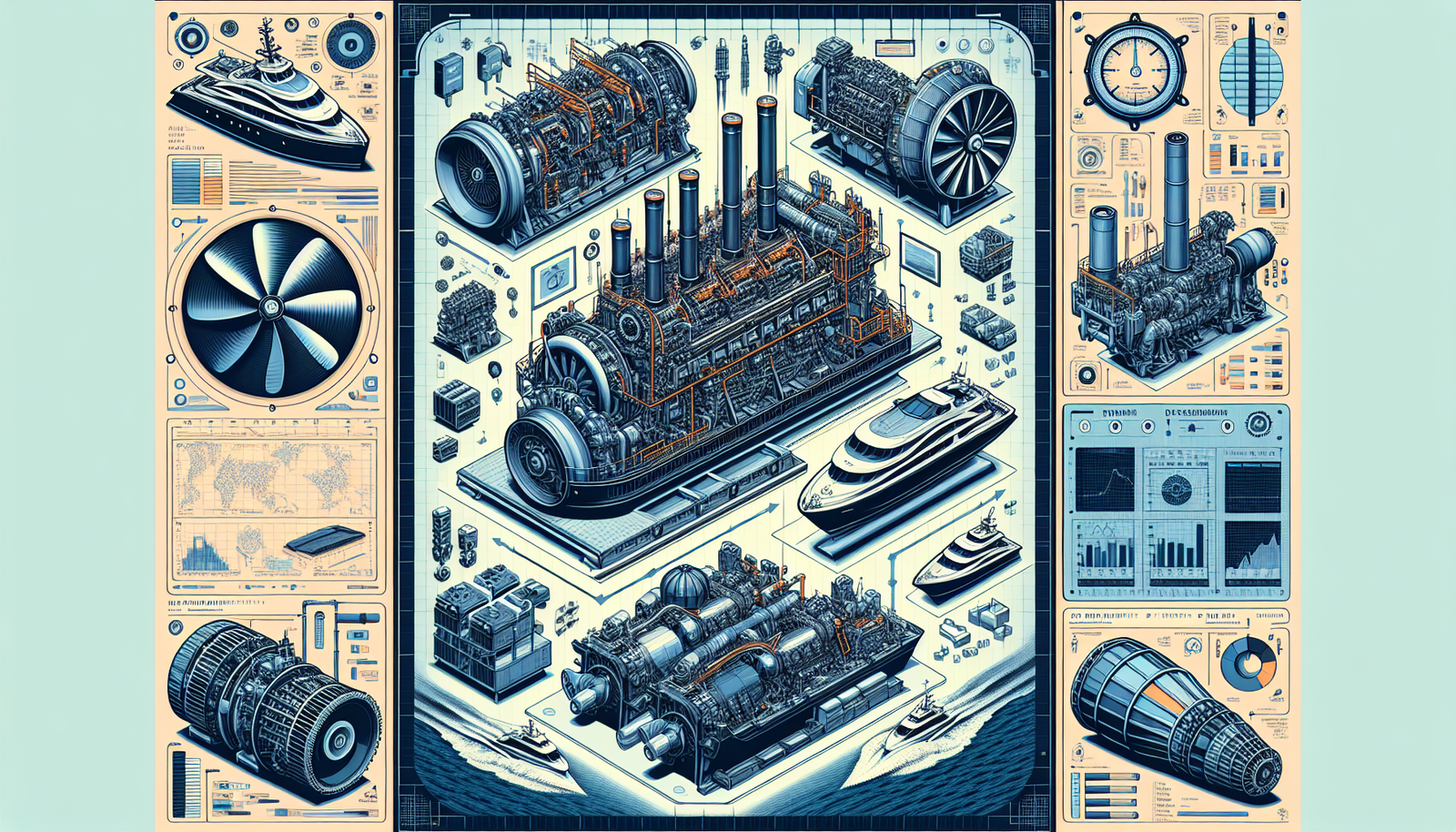You’re about to embark on a journey exploring the concept of fuel systems, but not just any fuel systems, the ones specifically designed for boat engines. This comprehensive write-up will shed light on the most efficient types of these systems available in the market today. It’s a deep-dive into the realm of mechanical engineering and innovation that promises to enhance the performance of your yachting or boating experience. Prepare yourself to gain an understanding of how advanced technologies are contributing to improved fuel use in boats, and how you can benefit from these advancements.

Understanding the Basic Boat Engine Fuel Systems
Every moment spent out at sea should be about savoring the wind in your hair and the thrill of the water under your boat. And honestly, worrying about engine fuel systems shouldn’t figure into your day out on the waves. Nevertheless, having basic knowledge of your boat’s fuel system is important for your aquatic excursion. When you know how things work, you can take action if something starts going awry — or even prevent problems before they happen. So, let’s get down to the basics of boat engine fuel systems.
Basic Components of Boat Engine Fuel Systems
The fuel system of your boat’s engine is made up of a few key components. Starting from the fuel tank, the journey of the fuel is facilitated by the fuel line, fuel pump, carburetor, or fuel injector. Each of these components is crucial in ensuring the smooth operation and fuel efficiency of your engine. What do they do? Let’s break it down.
Role of Each Component in Fuel Delivery
The fuel tank stores the fuel (obviously), while the fuel line transports the fuel from the tank to the other components of the fuel system. The fuel pump is like the heart of the fuel system; it paces the movement of fuel, pumping it towards the engine at the right speed. And then we have the carburetor or the fuel injector. These guys are key because they adjust the right mixture of fuel and air necessary for combustion in the engine. You see, too much fuel and your engine might stall; too little and your boat may not go as fast as it can.
Types of Boat Engine Fuel Systems
Carbureted Fuel System
One of the most common types of boat engine fuel systems is carbureted fuel systems. In these, a device called the carburetor mixes the air and fuel. The mixture is then introduced into the engine’s combustion chamber where the magic happens. The engine comes alive with a fiery combustion that propels you forward on your beautiful aquatic adventure.
Electronic Fuel Injection (EFI) System
In an electronic fuel injection (EFI) system, you trade the carburetor for a fuel injector. EFI systems alone have revolutionized the way fuel is delivered to the marine engine. It electronically controls and injects fuel directly into the engine. You get more power, smooth performance, and better fuel efficiency.
Direct Fuel Injection (DFI) System
And then there’s the direct fuel injection (DFI) system. In this case, fuel is injected directly into the combustion chamber of each cylinder. This brings high precision and increased engine performance, more so than the EFI or the carbureted system.
Advancements in Boat Engine Fuel System Technology
Use of Microprocessors in Fuel Delivery
As technology continues to rapidly advance, it is no surprise that it has also impacted the way boat engines consume fuel. Microprocessors are being implemented to control fuel injection more precisely, giving way to significant improvements in overall performance and fuel efficiency.
Role of Sensors in Fuel Efficiency
Another exciting development in boat engines is the use of sensors. These smart devices can detect and adjust fuel delivery according to changing conditions like engine load, temperature, and speed. The result? You get improved fuel efficiency, reduced emissions, and a more responsive boat engine.
Factors Influencing Fuel Efficiency in Boat Engines
Boat Design and Weight
Fuel efficiency is not just about your boat’s engine — it also matters how your boat is built. The design and weight of your boat can greatly affect fuel consumption. For example, heavy boats require more power to move, thus consuming more fuel.
Engine Size and Type
The size and type of your boat’s engine also matters. Large engines consume more fuel but provide more power, while smaller engines are more fuel-efficient but might not give you the speed you want.
Fuel Quality
High-quality fuel can drastically improve your boat’s efficiency. Therefore, avoid using contaminated or old fuel, because it can lead to engine problems and decreased performance.
Maintenance Practices
Lastly, regular maintenance is key to keeping your boat engine in the best shape. Cleaning, tuning, and replacing damaged or worn-out parts can enhance engine performance and fuel efficiency.

Improving Fuel Efficiency with Carbureted Systems
Optimizing Carburetor Settings
It’s quite possible to improve fuel efficiency if you have a carbureted system. It’s all about getting the settings right on your carburetor. By tuning your carburetor to maintain the ideal air-fuel mix, you can significantly improve your gas mileage.
Proper Maintenance of Carbureted Systems
As with any machine, regular maintenance is required to keep a carbureted system running smoothly. This can involve routine actions like cleaning the carburetor, checking for leaks in the fuel lines, and maintaining a clean fuel filter. Simple steps can help you get more miles out of every gallon of fuel.
Enhancing Fuel Efficiency with EFI Systems
Factors affecting EFI systems performance
Users of EFI systems also have practices that can enhance fuel efficiency. The efficiency of the EFI system can be affected by factors such as the accuracy of the sensors, the timing of fuel injection, and the pressure at which fuel is being injected. Monitoring these factors and making necessary adjustments can boost efficiency.
Importance of Regular Diagnostic Checks
With EFI systems, regular diagnostic checks become even more important. These checks can reveal issues like malfunctioning sensors or faulty fuel injectors, providing a chance for you to fix these problems before they have a chance to affect your fuel efficiency.

Fuel Efficiency in DFI Systems
Understanding DFI’s Fuel Consumption Benefits
While DFI systems are known for their precision in fuel injection, their real strength lies in how they can optimize fuel consumption. By controlling the amount of fuel injected to fit the exact need, these systems can save on surplus fuel that could have otherwise been wasted.
Maintenance for Maximum DFI Efficiency
To make the most out of a DFI system, regular maintenance is key. Just like the other systems, troubleshooting issues early on and replacing worn-out components often ensures peak performance and optimum fuel efficiency.
Choosing the Most Efficient Fuel System for Your Boat
Comparison of Fuel System Efficiency
When comparing the fuel efficiency of DFI, EFI and carbureted systems, it’s evident that DFI and EFI systems generally offer better efficiency than carbureted systems. However, your choice should not be solely based on efficiency, but also on considerations like cost, availability of services, and reliability.
Considerations Beyond Efficiency
When selecting a fuel system for your boat, think about more than just fuel efficiency. You should also contemplate factors such as the resilience and reliability of the system, the cost of the system and its maintenance, as well as your boating needs and style.

Environmental Impact of Efficient Boat Engine Fuel Systems
Understanding the Emission Standards
Efficient boat engine fuel systems not only save you money, but they also contribute to a healthier environment. Such systems help in reducing harmful greenhouse gas emissions, thus conforming to emission standards required by many countries.
Reducing Environmental Footprint Through Efficiency
By optimizing efficiency, your boat consumes less fuel for the same distance and power output. This reduces fuel emissions and your environmental footprint. These fuel-saving benefits can make your maritime adventure more sustainable.
Future Trends in Boat Engine Fuel Efficiency
Predicted Advancements in Fuel System Technology
The trend in boat engine fuel efficiency is clear: there’s still more progress to be made. Experts anticipate further advancements in fuel delivery technology to make boat engines even more efficient in the future.
Role of Biofuels and Alternative Energy
In addition to technical advances, new fuel sources such as biofuels and alternative energy are being explored. These alternatives can potentially revolutionize boat engine fuel systems, further increasing efficiency, and reducing environmental impact. So, if you’re a boat lover, the future indeed looks bright — and efficient!

